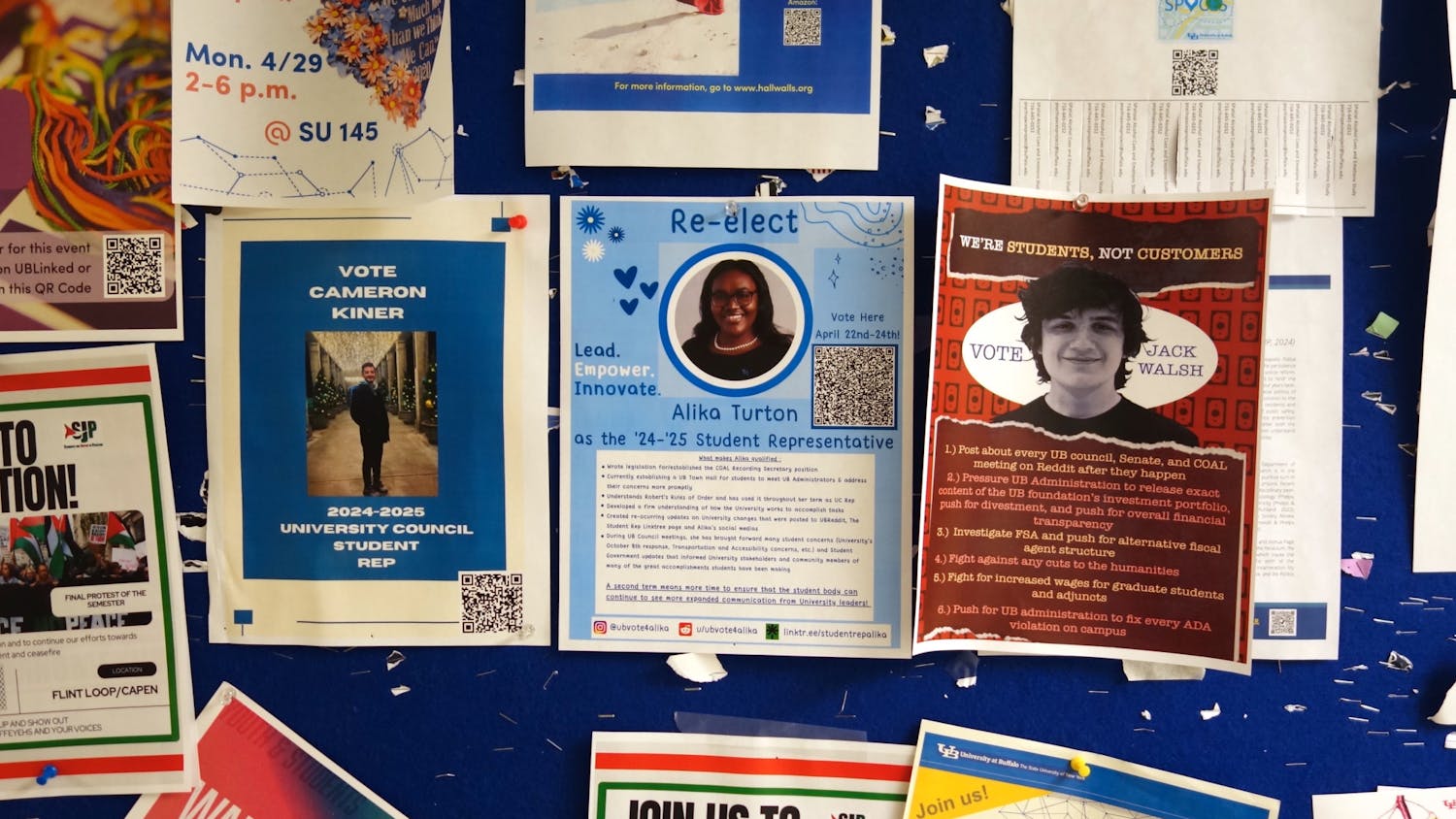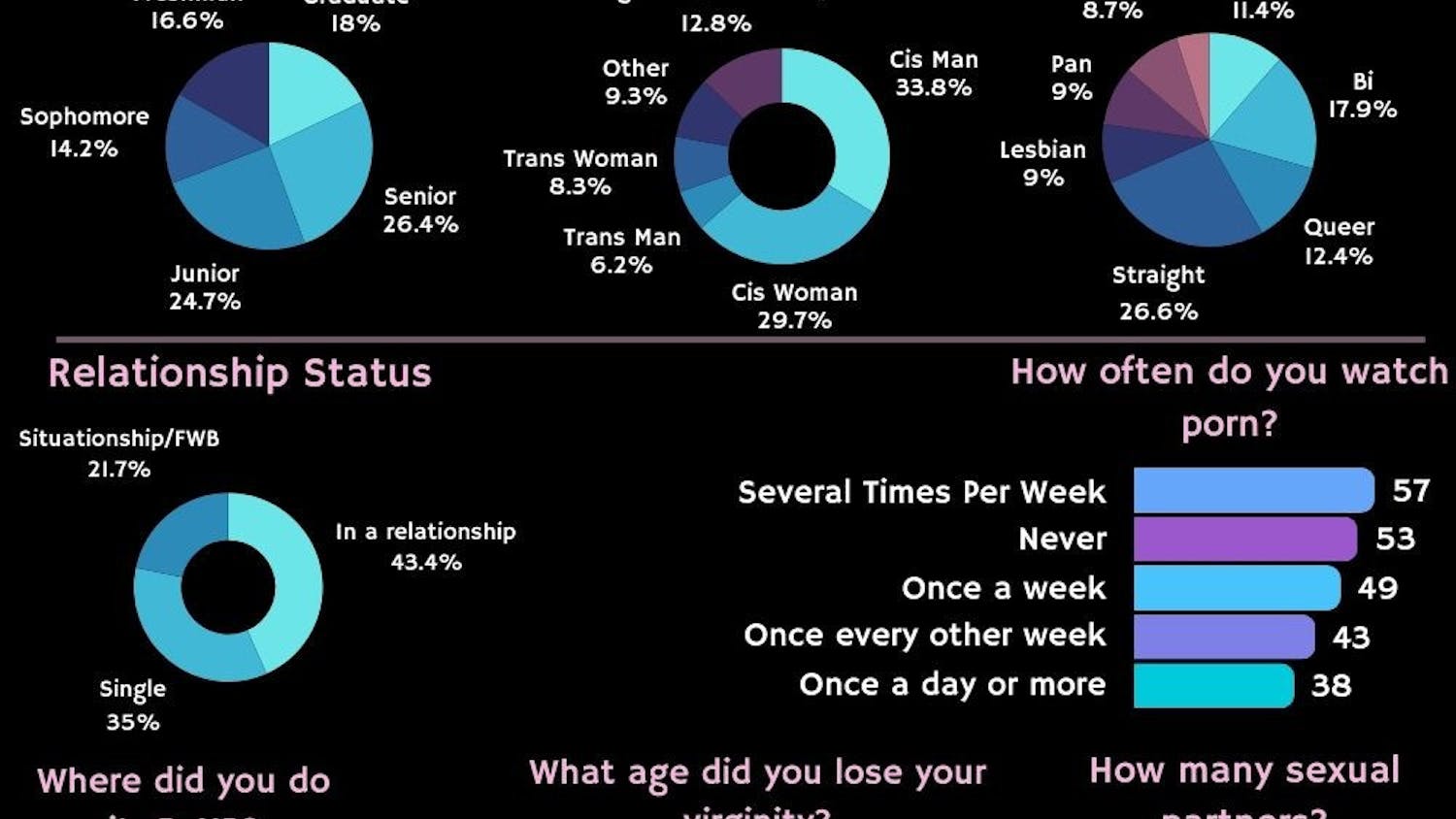An Oct. 1 press release on graduate student stipends from the UB communications office offers facts and figures arguing that, contrary to claims made by the Living Stipend Movement, graduate students are already being paid not only well enough, but well period. A “key issues” news page from the UB News Center website, revised on Oct. 23, reiterates the arguments of the Oct. 1 press release without substantive change.
I’d like to focus in on just one of their metrics, the purported average “hourly” rate of graduate student pay, because it points at a fundamental problem in how the UB administration is valuing graduate student labor.
A graduate stipend does not simply compensate students for the hours of service, like teaching or assisting with a professor’s research, that we provide to the university. Rather, a stipend is intended to support graduate students, at a sustainable level, in our full-time work in apprenticeship to the university. The administration’s arguments do not acknowledge this, indicating that their thinking about stipends is out of touch with a long-held consensus across higher education about what work should be supported when a university commits to financially support a graduate student.
The administration’s press release and their news page offer a few different calculations of an “hourly rate” for graduate student stipends. The press release claims that the average graduate student stipend is $18,006 a year (a number that we have argued may be inaccurate) and that “when annualized, the average stipend amount equates to $30.02 an hour.” The Oct. 23 news page revises this slightly, in one paragraph indicating that graduate students make $22.51 per hour, and in another paragraph indicating that they make between $22 and $30 an hour.
The documents do not explain how they calculated these numbers or why they are different. My best guess is that the $22.51 rate assumes TAs do 40 weeks of work per year, which corresponds to our twenty per annum biweekly pay checks; the $30.02 rate assumes TAs do 30 weeks of work per year, which corresponds to the 30 weeks of the fall and spring semesters. Both figures assume that TAs work 20 hours per week; this corresponds to the 20 hours average per week of service that our union contracts limit us to.
The problem with this calculation — and with its implied argument that if TAs are not making enough, it’s not because their rate is too low but because they are not working enough hours — is that a stipend isn’t meant to pay an hourly rate for services provided. It is meant to support a graduate student’s apprenticeship to the university’s work of teaching and research, at a sustainable, subsistence level like the one calculated by MIT’s Living Wage calculator as about $24,000 per year for the Buffalo region.
In exchange for that support, a graduate student is expected to offer some form of service in return. At UB, this is defined by the GSEU contract at an average 20 hours a week for 9 months out of the year, and is fulfilled by a range of duties including working in laboratories, assisting professors with grading and discussion sections, and teaching our own classes as instructors of record.
But the rest of the hours of the week, and the rest of the weeks of the year, including during winter and summer breaks, we are also apprenticed to the university: taking courses, studying for and sitting for comprehensive exams, doing our own research; and circulating our work into the world with UB’s name attached to it, in conference presentations, journal publications and book chapters. We serve on committees; we chair organizations; we advise students; we start publications; we organize conferences and symposia.
Year-round, Monday through Sunday, early morning to very late at night, UB works because we do.
All of these activities, not just the 20 hours of service we are contracted to perform, are part of the work that the graduate stipend supports. This sense of the scope of graduate student work is standard at any competitive university. The administration’s argument that we make $22 to $30 an hour elides the rest of this work. It obfuscates the fact that all of our working (indeed, usually all of our waking) hours are already committed to our obligations to the university.
It effaces the reality that, taking this more accurate view of the scope of graduate student work, we’re making more like $8.66 per hour if we’re using the administration’s average yearly stipend and working only 40 hours per week year-round, which shrinks to $4.81 per hour if we’re calculating based on the low stipends of $10,000 per year that some of us are offered. Calculating an hourly rate of pay gets even scarier when you take into account the fact that the work graduate students do often takes far more than 40 hours per week, and that graduate students pay over $2,000 a year in fees back to the university out of these already low stipend rates. Minimum wage in New York State is $10.40 per hour.
This argument is also problematic because it implies that, outside the 20 hours we are contracted to provide service to the university, we are free to sell our time and labor to anyone else we wish. This is inaccurate. International students are literally not free to do so, operating under legal restrictions that severely limit their ability to work for additional pay. And renewal of all TA contracts depends not only on our performance during our 20 hours of service, but also on our successful progress toward our degrees, which requires us to continue to take classes, take exams and finish dissertation chapters.
This isn't merely an obligation we must fulfill to keep getting paid, but also the whole point of graduate stipends in the first place: the promise of the opportunity to pursue an advanced degree in exchange for these hours of service and the right of the university to attach its name to our accomplishments as graduate students and, eventually, as alumni.
The press release opened with the claim that “the university very much values the talent and dedication of its graduate students” and states that graduate students are “critical to UB’s success as a major public research university.” I agree with the second claim — in both our capacity as teachers and assistants, and in our capacity as researchers who further UB’s reputation in its academic communities, graduate students do the essential work of the university.
However, the university cannot possibly hope to convince us of its esteem for our talent and dedication until it learns to value our work, by accounting in full for the all of the work we do at the university and making its claims about “value” literal by offering us a sustainable, living stipend of $24,000 per year.
--Kathleen Naughton, Ph.D. student, English department




